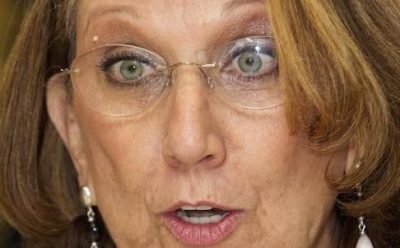
Poorest Countries Barred From Building Green Economy
UNCTAD Secretary-General Rebeca Grynspan has issued a rallying call for 2024, in a statement claiming that the rich countries are using the green transition as an excuse to boost their own economies at the expense of developing ones. According to the UN’s trade chief, the world’s advanced economies are greenwashing to make their own eco-credentials look better, while preventing poorer countries from developing quickly.
Grynspan attacked the EU for taking Indonesia to the WTO over its restrictions on nickel exports and requirement to process the ore locally. She said Jakarta wanted to move up the value chain by making products from the nickel. It is only reasonable for a country with an overstretched electricity grid to want to use its own nickel tp produce its own batteries, fro example – rather than being forced to export to China or Canada.
UNCTAD Secretary-General Rebeca Grynspan has issued a rallying call for 2024, in a statement claiming that the rich countries are using the green transition as an excuse to boost their own economies at the expense of developing ones.
“They don’t want it to be exported in the raw form, but with value added. So they were taken to arbitration in the WTO. They lost in the first instance precisely because global trade rules have not been adjusted,” she said. She said that the Agreement on Trade-Related Investment Measures should be reformed. Jakarta has appealed but because the US has blocked the formation of a WTO appellate body, the case has stalled. The EU is considering taking enforcement actions such as tariffs on Indonesian goods. It makes for a “chaotic system” where richer, bigger countries have more power.
“Many trade rules forbid policies that can be used by developing countries. And the developed countries have more fiscal space to subsidise in the areas that are good for ‘quote, unquote’, the environment,” Grynspan, told the Financial Times in an interview.
She said the international trading system, which had allowed states such as South Korea and her native Costa Rica to progress, was no longer working for the poorest. “Trade and investment have been the two pillars for developing countries to really go on to a path of dynamic growth,” she said. But they now face two big problems, locked out of markets by the fast pace of technological change and facing new barriers erected in rich countries. “The least digitally prepared countries are falling farther behind in digital,” said Grynspan. “The other problem is that industrial policy …could affect developing countries’ ability to compete.”
The US landmark Inflation Reduction Act has $369bn of subsidies and tax breaks for domestically produced goods such as electric vehicles. The EU has responded in kind with increased subsidies and policies to stimulate production of silicon chips, critical minerals and green technology. “Developing countries see a lot of these policies as protectionist. They don’t have the …